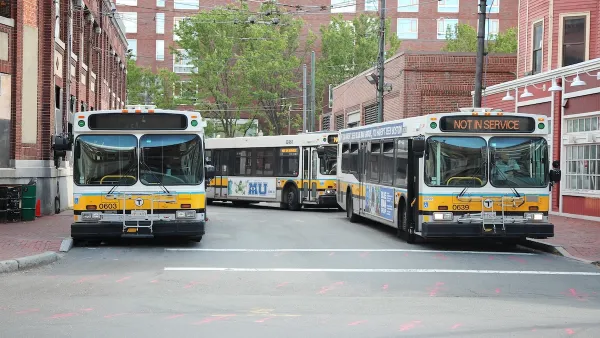The premise behind the energy benchmarking laws found in many cities is that they will induce owners to increase the efficiency of their buildings. But a new report questions whether the investment in data collection leads to changes in energy use.
A new report by a Harvard environmental economist questions energy efficiency benchmarking practices, which building owners often oppose, writes Elizabeth Daigneau.
The report argues that benchmarking, which requires that building owners track energy and water use in their buildings, does not account for individual resident use patterns and that low ratings can harm property values. Furthermore, the authors found no evidence "that these mandatory programs lead to any changes whatsoever in energy use.”
Commissioned by the Greater Boston Real Estate Board and the Building Owners and Managers Association, the report was produced in response to a new benchmarking ordinance in Boston, which would affect commercial properties larger than 25,000 SF and residential properties with more than 25 units.
Buildings account for the lion's share of greenhouse gas emissions in Boston, with 75 percent of building-related emissions coming from commercial and industrial operations.
The report is inconclusive on how benchmarking needs to be modified in order to ensure, rather than just track, building efficiency.
FULL STORY: Does energy benchmarking actually lead to more efficient buildings?

Analysis: Cybertruck Fatality Rate Far Exceeds That of Ford Pinto
The Tesla Cybertruck was recalled seven times last year.

National Parks Layoffs Will Cause Communities to Lose Billions
Thousands of essential park workers were laid off this week, just before the busy spring break season.

Retro-silient?: America’s First “Eco-burb,” The Woodlands Turns 50
A master-planned community north of Houston offers lessons on green infrastructure and resilient design, but falls short of its founder’s lofty affordability and walkability goals.

Test News Post 1
This is a summary

Analysis: Cybertruck Fatality Rate Far Exceeds That of Ford Pinto
The Tesla Cybertruck was recalled seven times last year.

Test News Headline 46
Test for the image on the front page.
Urban Design for Planners 1: Software Tools
This six-course series explores essential urban design concepts using open source software and equips planners with the tools they need to participate fully in the urban design process.
Planning for Universal Design
Learn the tools for implementing Universal Design in planning regulations.
EMC Planning Group, Inc.
Planetizen
Planetizen
Mpact (formerly Rail~Volution)
Great Falls Development Authority, Inc.
HUDs Office of Policy Development and Research
NYU Wagner Graduate School of Public Service




























